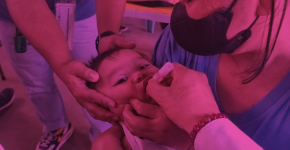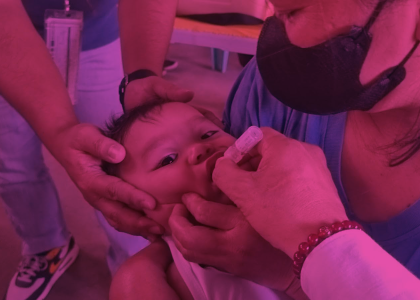By Noel Alidio, MD – BoD, Rotary Action Group for Diabetes
Within the population of people with diabetes, lack of financial means for health care is associated with poor glycemic control. In addition, low use of health care service is associated with poor glucose and blood pressure control. In low- and middle-income countries, where 80% of people with diabetes live, the level of awareness of the condition remains low in spite of the growing public health burden.
Need for Health Care
Diabetes care is hindered by limited healthcare capacity and shortage of healthcare professionals who can diagnose and effectively provide treatment strategies for diabetes. Lack of a stable supply of diabetes medicines and equipment is also among the barriers to effective diabetes care. People with diabetes are at high risk of a heart attack, a stroke, and other micro- or macrovascular complications. While diabetes pose a huge health and economic burden to society, effective diabetes control and management such as control of ABCs of diabetes—glycemic control (A1C control [“A”]), blood pressure control (“B”), and lipid control (cholesterol control [“C”])—can decrease the diabetes burden through prevention or delay onset of complications.

Financial Burden and Lack of Medical Access
Access to health care, including the financial means, play a crucial role in the receipt of preventive services. Financial burden of healthcare have been associated with lower use of preventive services. In addition, absence of a physician or usual source of care is a barrier to the control of hypertension. Furthermore, lack of ability or means to afford healthcare is associated with an increased risk of overall health decline among late-middle-age adults.
While preventive care practices and diabetes control can delay onset or prevent complications of diabetes, optimal preventive care and control depend on access to health care. Financial burden of healthcare in people with diabetes contribute to less likelihood to receive needed care and to effectively manage their disease than those who have the financial means. Those with financial assistance are more likely to maintain glycemic control than those without.
The lack of access to health care is associated with diabetes control. It is found that the diabetes control profile was related to financial means and number of health care visits. Those who were financially challenged reported fewer health care visits and were more likely not to have a usual source of care than those who were insured. Furthermore, the financially burdened were more likely to have worse diabetes control profiles.
Interaction for Diabetic Patient
For prevention and management of diabetes complications, a Position Statement of the ADA addressed the importance of routine diabetes visits for testing and screening. Access to health care is associated with the frequency of health care use among patients with chronic conditions. Access to health care is associated with both the frequency of health care use and health care outcomes. Diabetes complications control and management depend on a continuing interaction between health care providers and patients. Through this interaction, patients and health care providers share information, which tends to improve diabetes care and control. Lack of access to health care could make this interaction difficult, thereby bringing about negative health outcomes.

Rotary Cares: Call for Action
Rotarians and Rotary Clubs have a long history of assisting those that cannot help themselves. Around the world, more than Half a Billion people are living with diabetes and nearly 7 Million whose lives have been taken by complications of diabetes. Rotarians can make a difference. Please join our efforts at https://rag-diabetes.org/join/
















